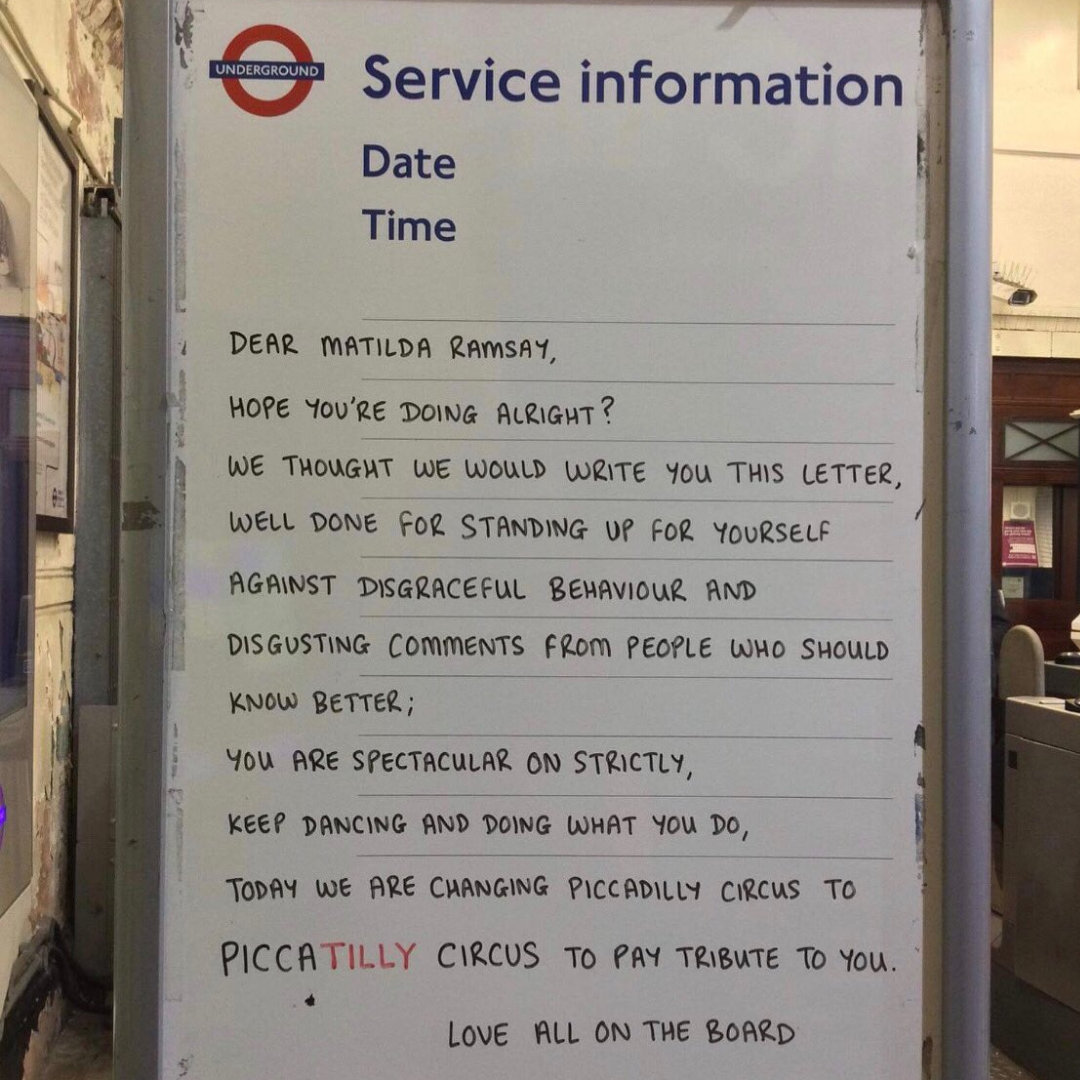
It’s something we’ve all done.
No doubt at some point we have all hurt someone by opening our mouths to comment on something that absolutely did not need to be said. I know I have.
We know it makes people feel sad. We tell children that ‘sticks and stones may break their bones, but names will never hurt them’. Rubbish.
Words can hurt with the same ferocity as a punch to the gut. We know we feel sad when it happens to us. We hear people’s comments. We hear in their words the worst things we think about ourselves. It makes it true. We take words to heart and carry them with us. They hold us back from adventure, from love, from life.
So why when we know it causes us pain to hear, do we feel like it is our place to say about others?
Gossip, bitching, banter. Call it what you like. It is judgement and it is heavy.
Is it privilege that lets us share these thoughts? No doubt. When you speak from a place of comfort and bestowed respect, then sure, it is easy to believe people want to hear what you have to say – like a 67-year-old radio host.
Men seem to feel more confident in their right to share opinions. But we don’t all have that platform of privilege.
We say it’s just a bit of fun, no big deal. But it hurts people.
Sometimes it’s their weight, sometimes it’s their clothes, how much they’ve had to drink, their politics, their partner, whether they’ve had children yet. The list goes on.
We seem to feel entitled to our opinion on all topics.
Okay, we’re human and we follow shorthand patterns of thought. We expect, we categorise, we stereotype. We claim it is harmless. We say it out loud. But we do not have the right to judge.
When we hear it, we tell ourselves that is a reflection of the person who comments. It’s a projection of their insecurity. It’s that they don’t understand boundaries. It’s their lack of emotional intelligence.
But it hurts.
It hurts wider than the person too, it can hurt all people who identify in a similar way. When a footballer is racially abused, so are all BAME people. When Tilly Ramsey is called chubby, so many of us will take a look in the mirror to confirm what we already believe about ourselves. As Marcus Rashford said,
“I have beautiful children of all colours following me and they don’t need to read it. Beautiful colours that should only be celebrated.” January 2021
As Tilly Ramsey said,
“I try not to read and listen to comments and negativity however recently being called out on a national radio station by a 67-year-old man is a step too far. Steve please feel free to voice your opinions however I draw the line at commenting on my appearance… please remember that words can hurt.” October 2021
We know people feel more confident to comment when they are a step removed, to racially abuse from behind the anonymity of a username, to air opinions on a celebrity that we would never say to a friend. We should end online anonymity. There should be consequences.
But how do we stop judging others? How do we think differently?
Here’s what I try to do
- You do you. We all run our own race in our own way. There is space for us all to be valued. As a friend used to say, ‘Your candle doesn’t burn any brighter by blowing out someone else’s’
- Try to be in the moment. Am I judging? The fact that it happens flippantly can’t be an excuse. Look at it up close. Sit within the feeling. It is always ugly.
- Be curious. What do I not understand about this? Where does my judgement come from? Can I learn from this? Have I walked a mile in their shoes?
- Be kind. It shouldn’t be something we need to remember to do.
- Take responsibility for myself. We can all do better.
They say opinions are like arseholes, we all have them and they all stink. Maybe we need to add – and no one wants to hear them.
Picture Credit: @allontheboard

Curious though when people are posting intentionally misleading information say about COVID or black American IQs – am I supposed to “you do you”? When they’re words are leading to radicalization and violence?